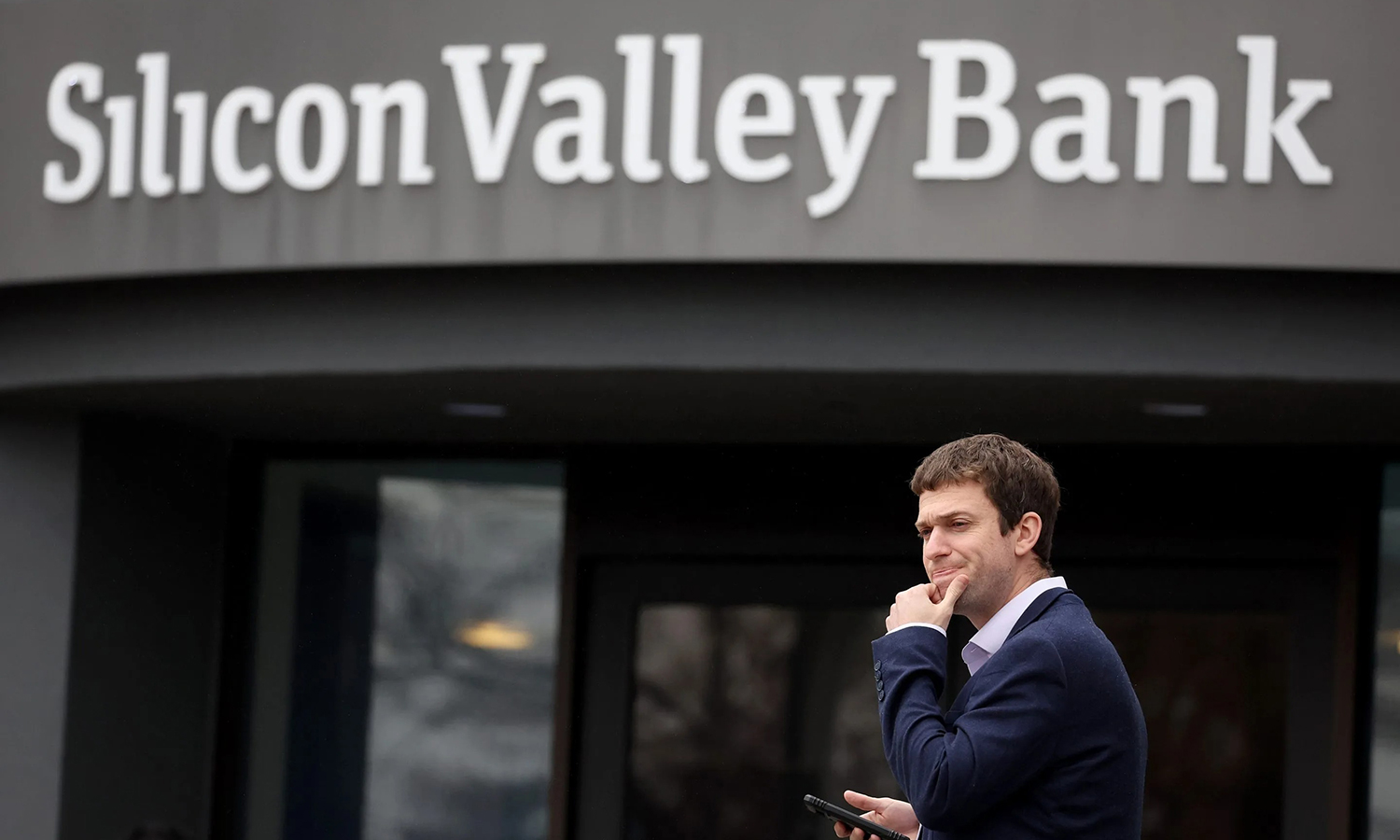
在硅谷銀行(Silicon Valley Bank,SVB)倒閉前14天和我從硅谷銀行取出公司的資金前13天,我讀到了一份市場報告。這份報告由硅谷銀行發布,本來只是一份常規報告,卻揭示了一個對初創公司而言值得擔憂的現實。初創公司手頭的現金較少,這意味著初創公司的現金生命周期更短。此外,與過去三年相比,初創公司如今每輪融資之間平均間隔的期限更長。公司增長速度緩慢。而且公司估值也受到了巨大的沖擊。
當然,融資市場一直充滿挑戰,任何創始人或者首席執行官都不會對此感到意外。但如此疲軟的融資市場卻為人們敲響了警鐘,提醒我們當前市場之殘酷。
所以,你可能會想,我是否有占卜吉兇的水晶球?我是否發現了初創公司的現金更少和硅谷銀行(被民間稱為“初創公司的銀行”)的存款減少,與兩周后的流動性危機之間的聯系?我是否預測到這種情況會發生?
當然沒有。我并不確實是否有人能夠預料到這種狀況。
但上周晚些時候,隨著迅速發展的流言在創業圈廣為流傳,我不想冒險或者兩邊下注。觀望并不可以降低風險。周四上午,我取出了Little Spoon存在硅谷銀行的幾乎全部現金。
我領導公司的核心理念是將我所服務的人們放在第一位,包括我的員工、客戶和投資者。我們的團隊成員和每周在我們的網站上購買兒童食品的數以萬計家庭的生計,可能都依賴這個決策。因此我快速行動,遠離風險。這個選擇讓我的公司成功避免了令人痛苦的慌亂局面,而其他許多公司在最近幾天都不得不忍受這種困境,而且它可能幫助我們擺脫了可怕的災難。
我依舊記得與硅谷銀行的第一次接觸。在那之前不久,我和其他聯合創始人在富國銀行(Wells Fargo)的一家分行排了45分鐘長隊,只是為了預約匯款,之后又因為繁瑣的文書工作等待了45分鐘,在這期間我們還不得不忍受不請自來的抵押貸款推銷。
但硅谷銀行截然不同。他們相信宏大的想法,并樂意押注在早期創始人的身上,而普通銀行永遠不會這樣做。對于全世界的初創公司和獲得風險投資支持的公司而言,硅谷銀行不僅是最大、最高產的銀行,也是分享見解和社區建設的首選,而且該銀行提供一流的服務。
這是一家非常特殊的銀行。很可惜,現在,創業圈出現了巨大空白。
未來我們將何去何從?在上周晚些時候硅谷銀行倒閉后,作為美國人,作為創業者,作為快速被我們喜歡的品牌所吸引的個人,我們能夠從中得到什么教訓?
通過反思過去幾天的瘋狂狀況,我得到了幾點啟示。
我們必須更加重視創業這份事業的重要性
初創公司在挑戰現狀和追求更美好的生活方面發揮著關鍵作用。這是一項偉大的事業,它意味著我們有可能為大眾創造更美好的生活。大銀行、大公司和政府是時候面對這一現實了。
以我的公司為例。嬰幼兒食品市場一直備受質量問題、信任問題、產品召回和缺乏監管等因素困擾。這不可能成為常態,而且美國的1,100多萬家長和4,000萬兒童不應該忍受這樣的狀況。
初創公司領域可能遭受巨大損失,這意味著整個社會可能會迎來大幅退步。我們不應該讓這種情況發生。
充滿活力的創業圈
銀行擠兌顯然可以提醒我們,我們是多么相信彼此。人們通過無數短信、電子郵件和各種努力,幫助傳播初創公司急需資金的消息。這個規模不大但強大有力的社區知道如何快速行動和發起運動,如何在短短幾個小時內動員集體的力量。
我們證明了我們能夠快速團結一致,相互扶持。我們不能失去這種品質。在過去幾天,Little Spoon幾乎要陷入與許多初創公司相同的困境,這令我感觸良多。事實上,有許多公司提出了與我們相同的使命,那就是讓父母的生活變得更輕松,或許他們的使命更加高尚。理念相同的公司應該相互幫助,這樣才可以產生更大的影響。
最壞的情況可能發生
你可能以為我們會從新冠疫情中領悟到這一點,但記憶總會被美化。此次硅谷銀行倒閉似乎令人難以捉摸,但現在我們又面臨另外的局面,要面對一條全新的充滿不確定性的道路。對于創始人們而言,制定應急計劃和各種解決方案,以免發生意想不到的情況,具有前所未有的重要性。有多個銀行賬戶并不會影響公司的運營。
幸運的是,情況并不像人們最初所擔心的那樣糟糕,而創始人們即使有所遲疑,也可以集體松一口氣。
至于未來會怎樣?我們所擅長的事情之一就是想象未來的潛力。沒有人會立即停止追求夢想。(財富中文網)
本文作者本·劉易斯(Ben Lewis)是Little Spoon公司的首席執行官及聯合創始人。
Fortune.com上發表的評論文章中表達的觀點,僅代表作者本人的觀點,不代表《財富》雜志的觀點和立場。
譯者:劉進龍
審校:汪皓
在硅谷銀行(Silicon Valley Bank,SVB)倒閉前14天和我從硅谷銀行取出公司的資金前13天,我讀到了一份市場報告。這份報告由硅谷銀行發布,本來只是一份常規報告,卻揭示了一個對初創公司而言值得擔憂的現實。初創公司手頭的現金較少,這意味著初創公司的現金生命周期更短。此外,與過去三年相比,初創公司如今每輪融資之間平均間隔的期限更長。公司增長速度緩慢。而且公司估值也受到了巨大的沖擊。
當然,融資市場一直充滿挑戰,任何創始人或者首席執行官都不會對此感到意外。但如此疲軟的融資市場卻為人們敲響了警鐘,提醒我們當前市場之殘酷。
所以,你可能會想,我是否有占卜吉兇的水晶球?我是否發現了初創公司的現金更少和硅谷銀行(被民間稱為“初創公司的銀行”)的存款減少,與兩周后的流動性危機之間的聯系?我是否預測到這種情況會發生?
當然沒有。我并不確實是否有人能夠預料到這種狀況。
但上周晚些時候,隨著迅速發展的流言在創業圈廣為流傳,我不想冒險或者兩邊下注。觀望并不可以降低風險。周四上午,我取出了Little Spoon存在硅谷銀行的幾乎全部現金。
我領導公司的核心理念是將我所服務的人們放在第一位,包括我的員工、客戶和投資者。我們的團隊成員和每周在我們的網站上購買兒童食品的數以萬計家庭的生計,可能都依賴這個決策。因此我快速行動,遠離風險。這個選擇讓我的公司成功避免了令人痛苦的慌亂局面,而其他許多公司在最近幾天都不得不忍受這種困境,而且它可能幫助我們擺脫了可怕的災難。
我依舊記得與硅谷銀行的第一次接觸。在那之前不久,我和其他聯合創始人在富國銀行(Wells Fargo)的一家分行排了45分鐘長隊,只是為了預約匯款,之后又因為繁瑣的文書工作等待了45分鐘,在這期間我們還不得不忍受不請自來的抵押貸款推銷。
但硅谷銀行截然不同。他們相信宏大的想法,并樂意押注在早期創始人的身上,而普通銀行永遠不會這樣做。對于全世界的初創公司和獲得風險投資支持的公司而言,硅谷銀行不僅是最大、最高產的銀行,也是分享見解和社區建設的首選,而且該銀行提供一流的服務。
這是一家非常特殊的銀行。很可惜,現在,創業圈出現了巨大空白。
未來我們將何去何從?在上周晚些時候硅谷銀行倒閉后,作為美國人,作為創業者,作為快速被我們喜歡的品牌所吸引的個人,我們能夠從中得到什么教訓?
通過反思過去幾天的瘋狂狀況,我得到了幾點啟示。
我們必須更加重視創業這份事業的重要性
初創公司在挑戰現狀和追求更美好的生活方面發揮著關鍵作用。這是一項偉大的事業,它意味著我們有可能為大眾創造更美好的生活。大銀行、大公司和政府是時候面對這一現實了。
以我的公司為例。嬰幼兒食品市場一直備受質量問題、信任問題、產品召回和缺乏監管等因素困擾。這不可能成為常態,而且美國的1,100多萬家長和4,000萬兒童不應該忍受這樣的狀況。
初創公司領域可能遭受巨大損失,這意味著整個社會可能會迎來大幅退步。我們不應該讓這種情況發生。
充滿活力的創業圈
銀行擠兌顯然可以提醒我們,我們是多么相信彼此。人們通過無數短信、電子郵件和各種努力,幫助傳播初創公司急需資金的消息。這個規模不大但強大有力的社區知道如何快速行動和發起運動,如何在短短幾個小時內動員集體的力量。
我們證明了我們能夠快速團結一致,相互扶持。我們不能失去這種品質。在過去幾天,Little Spoon幾乎要陷入與許多初創公司相同的困境,這令我感觸良多。事實上,有許多公司提出了與我們相同的使命,那就是讓父母的生活變得更輕松,或許他們的使命更加高尚。理念相同的公司應該相互幫助,這樣才可以產生更大的影響。
最壞的情況可能發生
你可能以為我們會從新冠疫情中領悟到這一點,但記憶總會被美化。此次硅谷銀行倒閉似乎令人難以捉摸,但現在我們又面臨另外的局面,要面對一條全新的充滿不確定性的道路。對于創始人們而言,制定應急計劃和各種解決方案,以免發生意想不到的情況,具有前所未有的重要性。有多個銀行賬戶并不會影響公司的運營。
幸運的是,情況并不像人們最初所擔心的那樣糟糕,而創始人們即使有所遲疑,也可以集體松一口氣。
至于未來會怎樣?我們所擅長的事情之一就是想象未來的潛力。沒有人會立即停止追求夢想。(財富中文網)
本文作者本·劉易斯(Ben Lewis)是Little Spoon公司的首席執行官及聯合創始人。
Fortune.com上發表的評論文章中表達的觀點,僅代表作者本人的觀點,不代表《財富》雜志的觀點和立場。
譯者:劉進龍
審校:汪皓
Exactly 14 days before Silicon Valley Bank (SVB) collapsed–and 13 days before I withdrew my company’s funds from SVB–I read a market report. Published by SVB, the otherwise routine report illuminated a concerning reality for startups. Startups have less cash on hand, which means less runway. Additionally, the average length of time between financing rounds is greater now than at any point in the last three years. Growth has slowed. And valuations have taken a big hit.
Of course, it’s no surprise to any founder or CEO that the fundraising market has been challenging. But seeing the extent of the softness was a stark reminder of just how rough it was out there.
So, you may be wondering… Did I have a crystal ball? Did I connect the dots between startups having less cash, and SVB (which was unofficially the “bank of startups”) having dwindling deposits and a liquidity crisis two weeks later? Did I see this coming?
No. I’m not sure anyone could have.
But as the rapidly developing rumor mill whirled through startup circles late last week, I wasn’t comfortable taking a risk or hedging my bets. A wait-and-see approach wasn’t going to cut it. On Thursday morning, I pulled out nearly all of Little Spoon’s cash that was deposited with SVB.
Core to how I lead is putting who I serve first: my employees, my customers, and my investors. The livelihoods of our team and the tens of thousands of families who come to our website every week for their children’s meals may have depended on this decision. So I acted fast and got us out. That choice saved my company from the gut-wrenching tailspin that many others had to endure in recent days–and it could have very well saved us from absolute disaster.
I still remember the first meeting I had with SVB. It came shortly after my co-founder and I waited in line at a Wells Fargo branch for 45 minutes to simply get an appointment to send a wire, only to sit through another 45 minutes of tedious paperwork while we simultaneously endured an unprompted mortgage pitch.
SVB was different. They believed in big ideas and were readily willing to place bets on founders of early-stage businesses that a normal bank would simply never make. They weren’t just the largest, most prolific bank to startups and venture-backed companies in the world, SVB was also a go-to for sharing insights and community-building, and offered tremendous best-in-class service.
It was truly special. And unfortunately, we are now left with a big void in the startup ecosystem.
Where do we go from here? What can we learn as Americans, as founders, and as individuals who quickly rallied around the brands we love in the wake of the shutdown late last week?
As I reflect on the insanity of the last few days, a few learnings come to mind.
We must double down on the importance of our work
Startups play a critical role in challenging the status quo and demanding better. That work is big and it means the potential for a better life for the masses. It’s time for big banks, large companies, and the government to lean into this reality.
Just take my business. The market for baby and kids’ food has been plagued with quality issues, trust concerns, recalls, and a lack of regulation. This can’t be the norm and it sure as hell is not what more than 11 million parents and 40 million children in the U.S. deserve.
Facing the prospect of seeing so much loss in the startup space meant staring down the possibility of massive steps backward for society at large. We can’t let that happen.
The startup community is loud and fierce
If we needed a reminder of how passionately we believe in one another, a bank run sure did the trick. Countless text threads, email chains, and efforts to help spread the word on startups in dire need of funds–this small, but mighty community knows how to act fast, launch campaigns, and within a mere few hours rally the masses.
We proved how quickly we could unify efforts and support one another. Let’s not lose that. It’s certainly not lost on me how easily Little Spoon could have been in the precarious position so many startups found themselves in the last few days. The truth is, there are countless companies out there who share our mission to make parents’ lives easier, or, perhaps, their missions are even more noble. Let’s help like-minded companies so we can all have even more impact.
The worst can happen
You’d think we’d learn this from the pandemic, but memories are merciful to us. This shutdown seemed unfathomable, but here we are on the other side, looking to a new uncertain path forward. It’s never been more critical for founders to have contingency plans in place and a range of solutions at the ready in case of, well, who knows what. A few bank accounts can’t hurt, either.
Fortunately, this situation is not as dire as initially feared and founders can breathe a collective–albeit hesitant–sigh of relief.
As for the future? One thing we’re great at is imagining its potential. None of us will stop dreaming anytime soon.
Ben Lewis is the CEO and co-founder of Little Spoon.
The opinions expressed in Fortune.com commentary pieces are solely the views of their authors and do not necessarily reflect the opinions and beliefs of Fortune.






